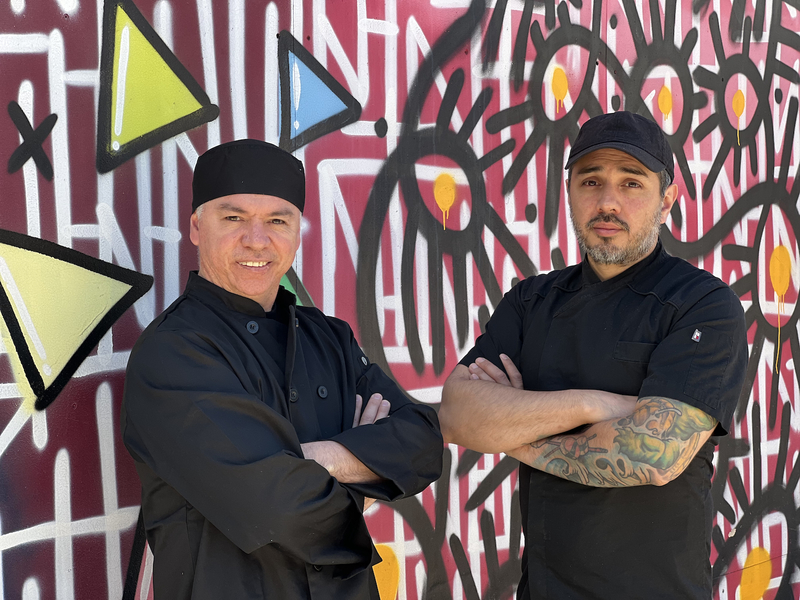In April, we reported on a temporary food truck ban imposed for a section of Water Street. The ban’s aim, according to Ald. Jonathan Brostoff, was to bring a temporary halt to issues that put a strain on both the health and police departments in preparation for city-wide regulation.
This week, Ald. Brostoff and Ald. Jocasta Zamarripa will present their proposed legislation to both the Licenses Committee and Public Safety and Health Committee. If passed by both committees, the legislation will go before the full Common Council for final approval on May 31.
Goals for the ordinance
A press release sent out by Zamarripa on Friday outlined the main points of the proposal, as well as the goals for the city-wide regulation.
“Right now the city’s options are too narrow when it comes to regulating food trucks,” said Brosthoff in the release. “It’s either ignore the problem until it gets too bad or enact a heavy-handed ban.
“We want to move away from that and instead have a system of regulatory guidance and structure that outlines how food trucks should be operating like we do for bars and restaurants. We believe this will provide greater clarity and support for those good operators currently in business, while also providing the city mechanisms to deal with the small handful of bad actors.”
Zamarripa noted that the goal is to create an effective system that provides a clear outline for food trucks to follow.
“Ald. Brostoff and I agree that bans are not the way to go,” she said. “We want to support our food trucks while also making sure our constituents are safe, which is why we have done the heavy lifting and put together comprehensive and progressive legislation that outlines how we expect food truck operators to conduct their business, and allow for the creation of food truck zones.”
Food truck zones
According to the release, the new ordinance “seeks to create an equitable and uniform set of standards for the operation of food trucks city-wide”. Among the provisions in the legislation is the creation of specific zones for food truck operation.
A Type 1 zone would not limit the number of food trucks in the zone, but would specify that trucks cannot be parked in the zone for more than six hours in any given 12-hour period. These same trucks would be restricted from operating after 1 a.m.
Meanwhile, a Type 2 zone would limit the number of food trucks allowed in a given area, but give each food truck a permanent parking space in the zone. Yearly applications, along with approval from the Licenses Committee would be required for trucks in such zones. Food trucks would be prohibited from operating after 3 a.m. Monday through Friday and 3:30 a.m. on Saturday and Sunday.
Regardless of zone, food trucks would not be able to operate within 50 feet of a restaurant without a drive-through. The Common Council would have the capacity to waive this restriction.
Food truck owners who violate the parking restrictions would be subject to a fine of $50 for the first violation, $100 for the second violation, $200 for the third violation and $450 for the fourth (and each subsequent) violation.
Trash and nuisances
Additional provisions specified include: Food truck owners would be required to provide trash bins for customer use, as well as monitoring of those trash receptacles. Food truck owners would be prohibited from dumping any quantity of liquid waste. They would also be subject to City nuisance regulations.
The full file for the proposal can be viewed online.
As a passionate champion of the local dining scene, Lori has reimagined the restaurant critic's role into that of a trusted dining concierge, guiding food lovers to delightful culinary discoveries and memorable experiences.
Lori is an avid cook whose accrual of condiments and spices is rivaled only by her cookbook collection. Her passion for the culinary industry was birthed while balancing A&W root beer mugs as a teenage carhop, fed by insatiable curiosity and fueled by the people whose stories entwine with every dish. Lori is the author of two books: the "Wisconsin Field to Fork" cookbook and "Milwaukee Food". Her work has garnered journalism awards from entities including the Milwaukee Press Club. In 2024, Lori was honored with a "Top 20 Women in Hospitality to Watch" award by the Wisconsin Restaurant Association.
When she’s not eating, photographing food, writing or planning for TV and radio spots, you’ll find Lori seeking out adventures with her husband Paul, traveling, cooking, reading, learning, snuggling with her cats and looking for ways to make a difference.







